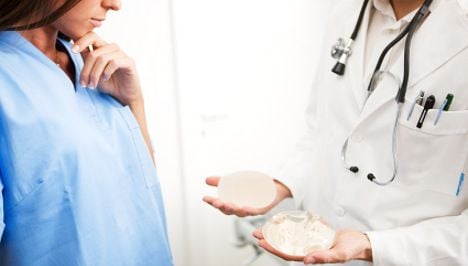Women with PIP implants “do not have a higher risk of cancer than women who have implants manufactured by other firms”, a statement said but added there were “well-established risks of ruptures.”
However Health Minister Xavier Bertrand called for their removal as a “preventive measure,” while stressing that this was not “urgent.”
French health officials had earlier said the government plans to recommend to the 30,000 French women with PIP implants that they be removed. The eight cancer cases involved mainly breast cancer.
The now-bankrupt Poly Implant Prothese (PIP) was shut down and its products banned last year after it was revealed to have been using non-authorized silicone gel that caused abnormally high rupture rates of its implants.
Facing financial difficulties, the company, once the world’s third-largest producer of silicone implants, replaced the medical-grade silicone in its implants with industrial-strength material.
Documents obtained by AFP on Wednesday showed that tens of thousands of women in more than 65 countries, mainly in South America and western Europe, received implants produced by PIP, which ceased trading last year.
Prosecutors in Marseille, near the firm’s home base of Seyne-sur-Mer, have received more than 2,000 complaints from French women who received the implants and have opened a criminal investigation into the firm.
Yves Haddad, a lawyer for 72-year-old PIP founder Jean-Claude Mas, told AFP his client was prepared to face prosecution and denied the implants could be linked with health problems.
“For the moment there is no evidence that the product can cause illness,” the lawyer said.
According to PIP’s 2010 bankruptcy filing in the southern city of Toulon, it exported 84 percent of its annual production of 100,000 implants.
Between 2007 and 2009, 50 to 58 percent of its exports went to South American countries including Venezuela, Brazil, Colombia and Argentina, the filing showed.
In the same period, 27 to 28 percent of exports went to western European nations including Britain, Spain, Italy and Germany.



 Please whitelist us to continue reading.
Please whitelist us to continue reading.
Member comments